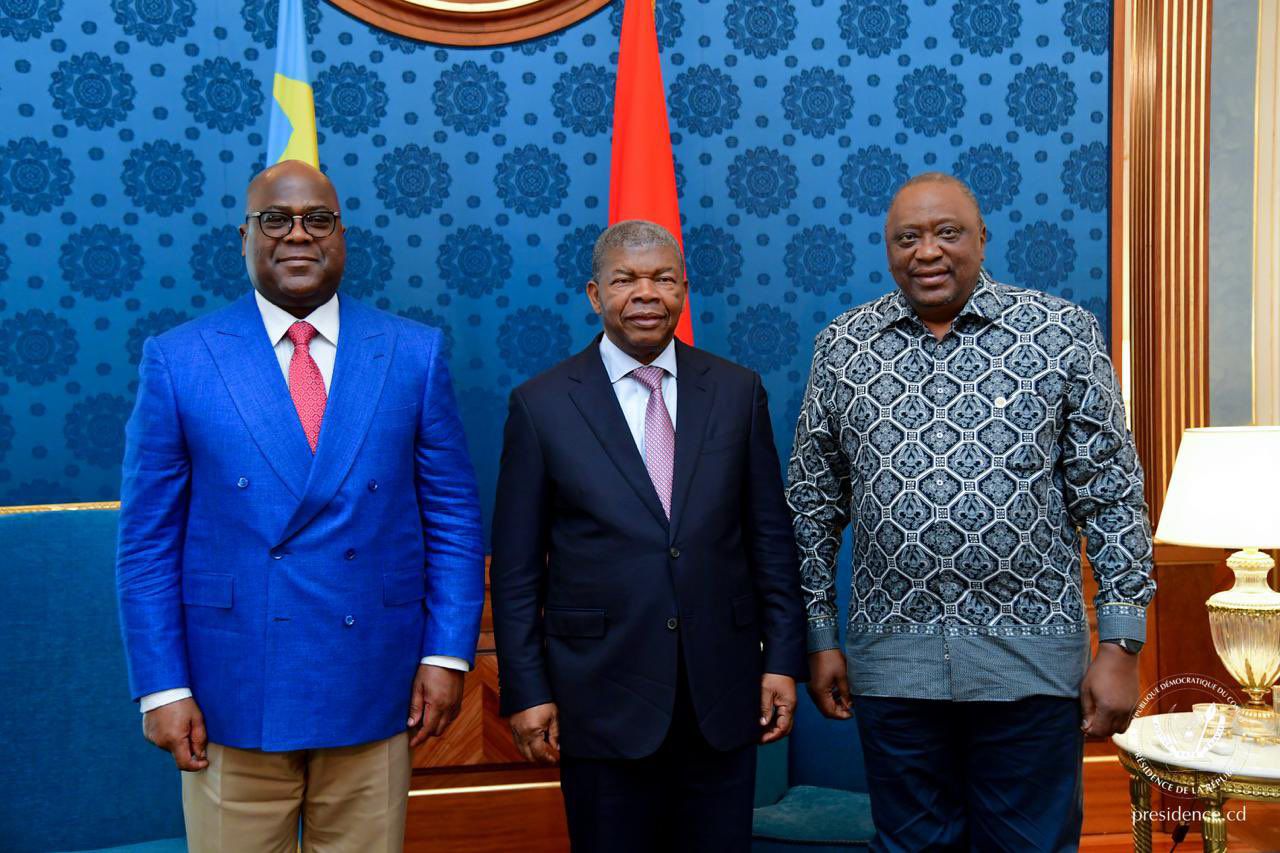The much-anticipated peace talks between Rwandan President Paul Kagame and DRC President Felix Tshisekedi, aimed at resolving the ongoing conflict in eastern DRC, were abruptly canceled on Sunday. Hosted by Angolan President Joao Lourenco, with former Kenyan President Uhuru Kenyatta attending as chief mediator, the summit had been expected to yield progress toward ending the years-long crisis.
Angola’s Presidential Media Officer Mario Jorge confirmed the cancellation, stating, “Contrary to what we expected, the summit will no longer be held today.” While Lourenco held separate discussions with Tshisekedi, Kagame did not participate, highlighting the fractured state of negotiations.
The stumbling block reportedly centered on Rwanda’s insistence that the DRC engage in direct dialogue with the M23 rebels. Rwanda’s Foreign Minister Olivier Nduhungirehe emphasized the need for a “firm commitment” from the DRC to hold talks with the M23 under a clear framework. However, the Congolese government has refused, labeling the M23 as “terrorists” and blaming their existence entirely on Rwandan military support.
Tshisekedi’s inflammatory remarks in parliament last week, where he referred to the M23 and the Rwandan army as “enemies of the Republic” and “terrorists,” have drawn criticism for escalating tensions rather than fostering dialogue. Observers argue that such rhetoric ignores the complexities of the conflict, particularly the DRC’s longstanding failure to dismantle militias like the FDLR, a Hutu rebel group accused of participating in the 1994 genocide against the Tutsi.
The situation is further aggravated by ongoing persecution and dehumanization of communities in eastern DRC, particularly the Banyamulenge, who are Congolese Tutsi. DRC officials, including Tshisekedi, have been accused of making blatant threats against President Kagame, with some officials openly calling for his assassination. Adding to the hostility, Congolese Tutsi communities, such as the Banyamulenge, are being derogatorily referred to as “Kagames,” a chilling development that fuels hatred and deepens divisions.
By labeling M23 militants as terrorists and fostering a hostile environment against Tutsi communities, Tshisekedi risks alienating key groups and undermining any potential for peace. Critics argue that the M23, largely composed of Congolese nationals, represents grievances long ignored by Kinshasa, including the marginalization of eastern communities. “Calling the M23 terrorists is counterproductive,” noted a regional analyst. “It overlooks their local roots and shifts the blame entirely to Rwanda without addressing internal governance failures.”
Efforts to stabilize the region have made little headway. A truce mediated by Angola in August briefly eased hostilities but failed to hold as both sides continued to exchange fire. Clashes have intensified since October, with the M23 gaining ground and nearly encircling Goma, a city of one million people and a hub for those displaced by war.
The conflict has also exposed Kinshasa’s inconsistencies in dealing with militias. While demanding Rwanda’s withdrawal, the DRC has resisted calls to dismantle the FDLR, a group Kigali views as a direct threat to its security. A strategic document drafted in August proposed a 90-day plan to neutralize the FDLR and facilitate Rwanda’s withdrawal, but the DRC rejected it, insisting on simultaneous actions.
As the crisis deepens, the lack of trust between Rwanda and DRC continues to hamper peace efforts. Rwanda has repeatedly called for a balanced approach that addresses all armed groups in the region, while Tshisekedi’s government appears focused on externalizing the conflict. For peace to take root, experts argue, both sides must confront uncomfortable truths: Rwanda must address concerns about its alleged support for the M23, while the DRC must tackle internal governance failures, militia impunity, and growing persecution of its own citizens.
Without meaningful dialogue, the humanitarian crisis in eastern DRC is set to worsen, with over a million people displaced and Goma on the brink of collapse. The international community, including Angola and Kenya, must now intensify its mediation efforts to prevent further escalation and find a sustainable path to peace.




















